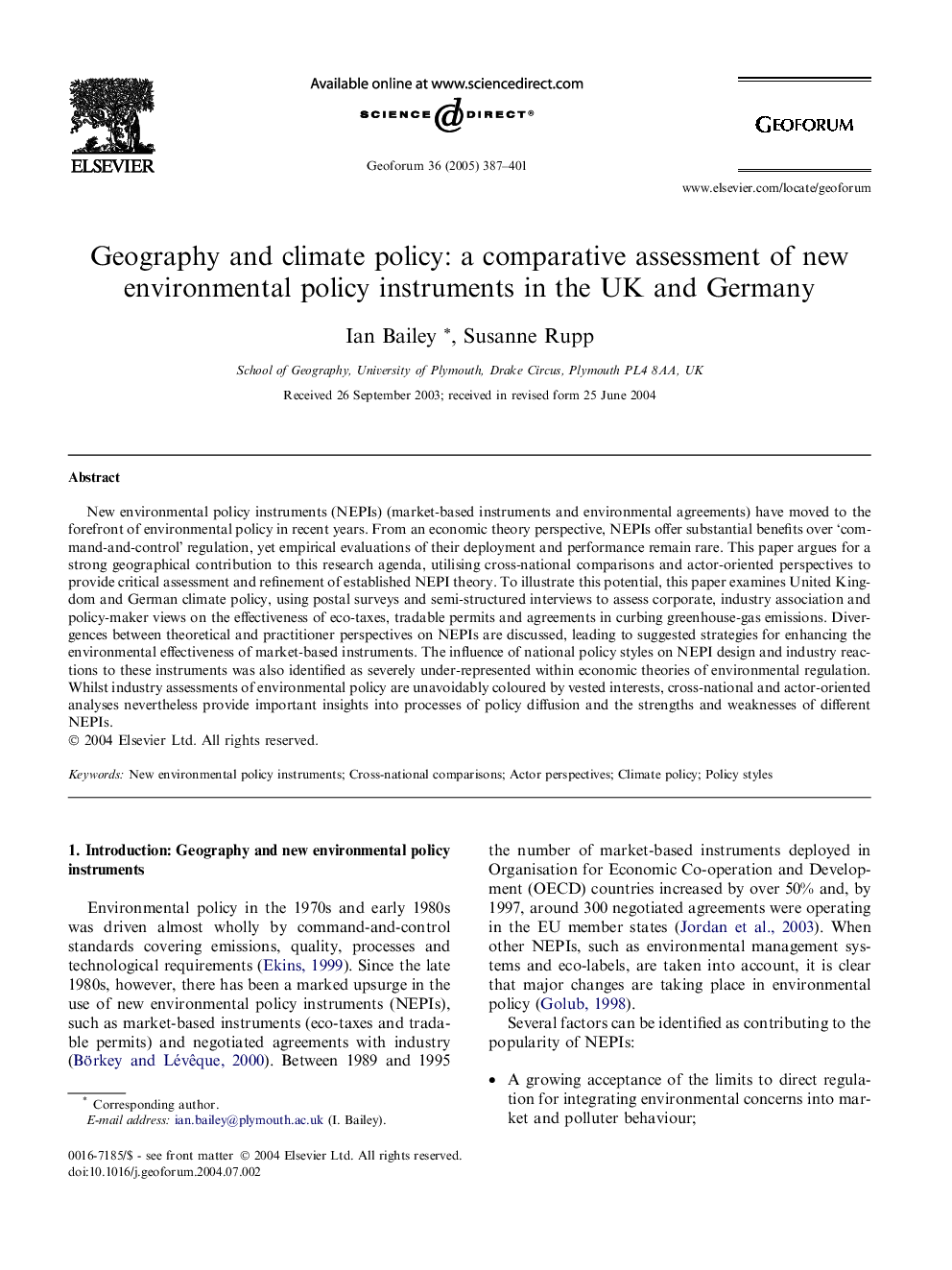| Article ID | Journal | Published Year | Pages | File Type |
|---|---|---|---|---|
| 9552183 | Geoforum | 2005 | 15 Pages |
Abstract
New environmental policy instruments (NEPIs) (market-based instruments and environmental agreements) have moved to the forefront of environmental policy in recent years. From an economic theory perspective, NEPIs offer substantial benefits over 'command-and-control' regulation, yet empirical evaluations of their deployment and performance remain rare. This paper argues for a strong geographical contribution to this research agenda, utilising cross-national comparisons and actor-oriented perspectives to provide critical assessment and refinement of established NEPI theory. To illustrate this potential, this paper examines United Kingdom and German climate policy, using postal surveys and semi-structured interviews to assess corporate, industry association and policy-maker views on the effectiveness of eco-taxes, tradable permits and agreements in curbing greenhouse-gas emissions. Divergences between theoretical and practitioner perspectives on NEPIs are discussed, leading to suggested strategies for enhancing the environmental effectiveness of market-based instruments. The influence of national policy styles on NEPI design and industry reactions to these instruments was also identified as severely under-represented within economic theories of environmental regulation. Whilst industry assessments of environmental policy are unavoidably coloured by vested interests, cross-national and actor-oriented analyses nevertheless provide important insights into processes of policy diffusion and the strengths and weaknesses of different NEPIs.
Related Topics
Social Sciences and Humanities
Economics, Econometrics and Finance
Economics and Econometrics
Authors
Ian Bailey, Susanne Rupp,
